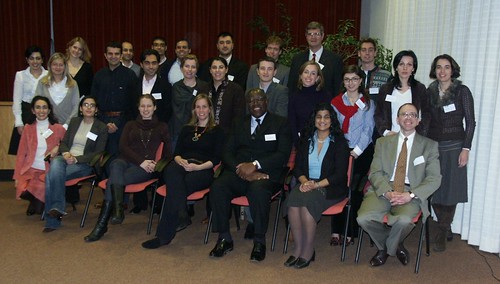A few days ago, I came across an article about Pakistan and the changing role of women in that society through a proposed law called the Anti-Women Practices Bill which was introduced into Parliament last week in Pakistan. For those who were not aware about this country's traditions or why this is so important, let me explain.
Certain areas of the country, whether a tribe, or small community, or family group, due to tradition and ignorance find it appropriate to force a woman to marry, or force her not to marry and marry her to a religion (literally Koran marriages actually happen to help prevent women claiming inherited property). They can even force her to marry to settle a feud.
I am not sure about you, but if my entire life, future and old age would have to be spent with a guy I hardly knew due to a feud in my neighborhood; I would go ballistic...
In recent years, there has been a push both culturally and politically (by some, not all) to move ahead the clock on these traditions, and to create a legal right of equality that never existed before in this young country (partitioned from India since 1947).
With a country that has the 6th largest world population of about 166+ Million people in an area almost twice the size of California, the masses are clearly getting a dose of new policy. This is important especially since 48% (based on the CIA at least) are deemed literate which means over 50% are not. Until those folks are educated, many of the people in the country side and villages lives a life of tradition, recounting oral history and guided by their neighbor on what morality, values and traditions to follow.
This law would outlaw forced marriages against women, whether by force through tribal custom or otherwise. The penalty is three years--to seven years depending on the offense. If a husband for example raises charges of infidelity and loses, he could face charges of slander and the woman could seek a divorce action. If this law passes, and can stand the muster of the traditionalists, it may offer women a voice, a strong hand and acknowledgement that their choice actually means something.
The hope that I have is that although the law could initiate and codify these important essential human rights, the people who enforce it, the families that hear about it, the women that find empowerment still have to bring this law into reality and make a lasting mark on day to day life in Pakistan... for everyone. Then can a women stop being forced into marriage and a life long journey she never chose.
Now as a Bahá'í, I would have to say that as the case of Sweatt v Painter; or even the recent case of the Bahá'ís in Egypt demonstrates (see blog entry 26 Dec 2006), we should not take things lightly especially on topics of equality, oppression and segregation. As important as it is to preserve the rights of women, or earlier rights to education to all races, the rights of human beings should be protected. Moreover, even though the law itself may not actually dramatically change the culture (as it was the case in the US until the last few decades), causing an outcry (albeit civilized and through legal means) may be a necessary part of our duty to be loyal to our government.
I would argue that at times, Bahá'ís should engage in the processes available to them whether by court or tapping the resources available to them as a country person (from US: letters to Congressmen etc.) and question the basis for laws, rules or customs that are outdated, or harmful to our understanding of humanity as a whole. This is not civil disobedience, but instead a necessary duty as a loyal citizen of that country.
If there is not a current law, action or rule that may excite you as an individual to be brought to a call to action, we have a unique way to engage in a new type of activism, through grass roots initiative and engaging in individual initiative.
Looking at the current guidance of the Universal House of Justice, each Bahá'í is called upon to make a difference and to shift the paradigm in which we live:
"No where has the rise in individual initiative been more clearly demonstrated in the field of teachinng[...] Equipped with skills and methods, effective and accessible to all, and encouraged by the response their actions elicit (i.e. firesides, study circles, children classes), the believers are entering into closer association with people of many walks of life, engaging them in earnest conversation on themes of spiritual import."-Universal House of Justice letter 27 December 2005.
Taking that to heart, the best medicine for human kind is a spiritual transformation of the heart; and with more of us on the grass roots level engaging in our core activities, our one on ones etc. the local activism we engage in will make life-transforming impact.
Subscribe to:
Post Comments (Atom)

1 comment:
It seems like the practice of loyalty to government is similar to the attitude Baha'is hold toward the institutions of their faith. Loyalty does not mean that a person abandons taking action based on conscience to right a possible injustice or correct a wrong, but sometimes demands. The proper exercise of conscience relative to loyalty to institutions whether of the society in which one lives or of the Baha'i Faith requires a great deal of spiritual maturity which is exactly what the Baha'i Faith is trying to create in the world. Very interesting issue.
Post a Comment